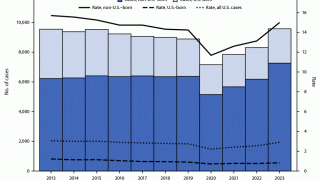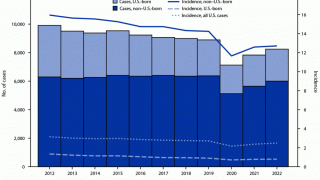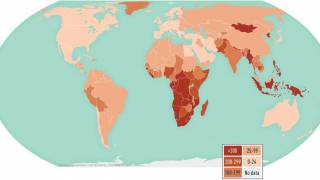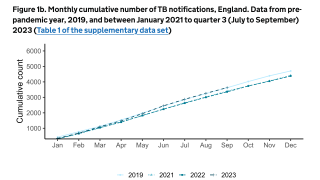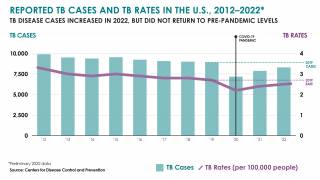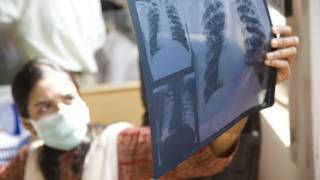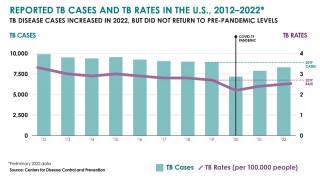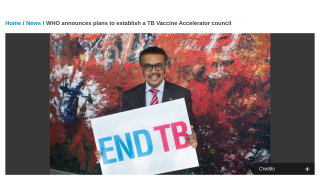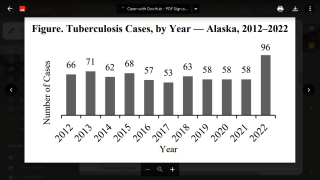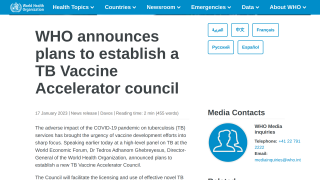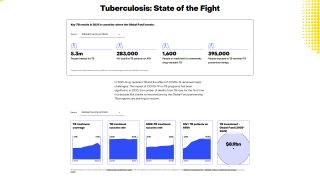Brazil Considers Recombinant BCG Vaccine for Infants

While most infants in Brazil's five regions are vaccinated against tuberculosis, the search for a more effective Bacillus Calmette-Guérin (BCG) vaccine accelerated in 2024.
Researchers from the Butantan Institute and collaborators confirmed on July 3, 2024, that they are developing a more potent version of the 100-year-old BCG vaccine.
While the conventional BCG vaccine reduces infection by 90% in experiments with mice, the so-called recombinant BCG (rBCG) increased the protection rate to 99%.
In addition, the rBCG formulation protected animals for a significantly more extended period of time (15-20 years).
“BCG is the first vaccine we receive at birth, effectively protecting children. However, immunity against the disease tends to wane in adulthood, and as bacteria become resistant to antibiotics, no one is safe. There’s been a global effort to improve the prevention of pulmonary tuberculosis in adults. Today, there are about 10 million new cases and 1.5 million deaths per year in the world,” commented Agência FAPESP Luciana Cezar de Cerqueira Leite, a researcher at Butantan Institute’s Vaccine Development Laboratory, in a press release.
To understand why rBCG leads to a more robust and longer-lasting immune response, the Butantan group and collaborators have adopted an approach known as systems biology – observing in an animal model the behavior of thousands of genes in different tissues throughout the assembly of the immune response.
This systems biology involves sequencing hundreds of samples, followed by intensive bioinformatics and data mining.
Cerqueira Leite addressed this topic on June 29, 2024.
“We sequenced all the RNA that was expressed and present in samples taken at different times: before the animal was immunized, seven and 90 days after immunization – when the challenge is performed [the bacteria are inoculated into the rodents’ noses] – and seven and 90 days after the challenge,” explains Cerqueira Leite.
“As early as seven days after immunization, a very big change could be seen in the group that received the recombinant version: about 200 genes were already being activated, while almost nothing happened in the conventional BCG group."
"After 90 days, the response to the conventional BCG began to decline, while it remained the same in the recombinant group. But the big news is that the two vaccines work through very different metabolic pathways, and we’ve been able to map them. The data will be published soon,” revealed the researcher.
Through genetic engineering, the rBCG version gained the ability to produce a fragment of a toxin originally secreted by Escherichia coli, a species commonly found in the human gut.
“Some E. coli bacteria produce heat-labile toxins, known by the acronym LT, which are highly immunogenic, i.e., they induce a strong response from the immune system. In the rBCG vaccine, we use a detoxified fragment of the LT toxin [called LTAK63]. It isn’t capable of causing disease, but it maintains immunogenicity, so it acts as an adjuvant to the rBCG vaccine.”
The researcher explained that the first studies using the recombinant BCG strategy were aimed at developing a neonatal pertussis vaccine.
In experiments with an animal model of tuberculosis, rBCG vaccination was found to reduce the amount of bacteria in the lungs a hundredfold and reduce inflammation in the organ.
“In trying to kill the bacteria, the defense cells end up attacking everything nearby and causing tissue damage. However, the lungs of the animals immunized with recombinant BCG are white and less inflamed. By detailing the mechanism of action of the two vaccines, we now understand why this happens.”
According to Cerqueira Leite, the production of the immunizer’s experimental rBCG batches is expected to begin in 2025 following one more round of tests in cattle, and human clinical trials could start in 2026.
The Global Coalition of TB Advocates recently confirmed that there are 16 TB vaccines in use in 2024. As of March 2024, 11 TB vaccine candidates were in late-stage development globally.
In the United States, Merck's TICE® BCG vaccine is U.S. FDA-approved, but has limited distribution.
Note: All RNA sequencing was performed in Shenzhen, China, by the company BGI, which provides genomics services to laboratories worldwide. Researchers from the Shenzhen Institute of Advanced Technology, the University of São Paulo, the Albert Einstein Israelite College of Health Sciences, Fiocruz Bahia, Novartis/GSK, the Institut Pasteur, and the Federal University of Goiânia, among others, collaborated in the studies.
Our Trust Standards: Medical Advisory Committee





